Best tablets for music production: Make music on the move, with the tap of a finger
Make touch-screen music on the move, with devices from Apple, Microsoft and Samsung compared and contrasted
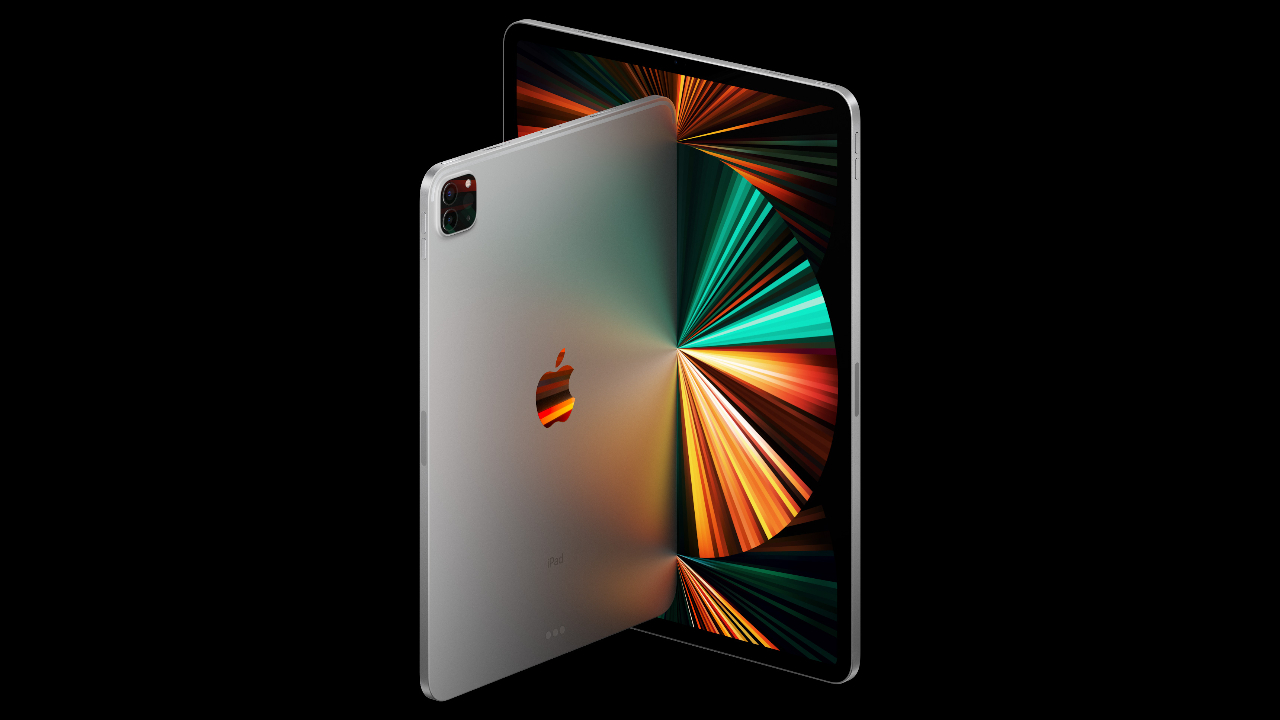
If you want to make music on the move, then buying one of the best tablets for music production could be the way to go. There are many options, at just as many price points, so there should be something for you no matter what your budget. Most music production tablets for can run the best music applications out there, including complete sequencers to arrange music, synths and other instruments like guitar and piano emulations. They are also powerful enough to handle software from some of the biggest names in the music production business, including Korg, Steinberg, Arturia, IK Multimedia, Moog and Fabfilter.
Tablets utilise touch-screen interfaces, so you can drag, drop and create sounds with the touch and swipe of a finger. They also offer much more screen real estate compared to your phone, and so make the whole music creation experience that much more fun and intuitive.
However, entering the tablet world for music production can be a slightly daunting experience, so we have created this buyer's guide with all the advice you need, plus reviews of the latest and best tablets for music production.
There are two main tablet types – Android and iOS – that run music production apps. A third type runs the full version of Windows. These devices are not always included in tablet round-ups as they are essentially laptops with touch screens – known often as 2-in-1 devices. However, as they deliver all the PC music making software power you need, and all within a touch-screen environment, we have included them in our round-up here.
Below, we discuss all three operating systems and which you should choose for music making. We have also listed our top music production tablet picks across all categories, alongside advice on using a tablet versus a laptop and desktop computer.
Best tablet for music production: MusicRadar’s Choice
As we explain in the buying advice section below, you should choose a tablet on portability versus power – the music making functionality you can expect compared to the weight and size of the tablet. However there's also the operating system the tablet uses to consider. This can be a divisive subject with many die-hard advocates lauding each system, so we'll divide our advice up accordingly.
The Windows systems – aka touch screens that effectively double as PC laptops – have been dominated by Microsoft's Surface Pro, which is certainly an expensive option if you just want to use a tablet. The latest Surface Pro 8 looks set to maintain that trend, with lovely design tweaks and new functionality. If you have the budget then you can spend a lot on the top end version of this, or you could opt for the cheaper tablet-only option (minus the keyboard) and upgrade later.
For iOS devices, Apple's iPad Pros really shook things up in the world of mobile music making when they were released a year ago. As ever, things change fast in the world of iPad releases, but we're still going to recommend the larger 12.9 Pro as our iPad of choice for music producers. It is not only (joint equally) the most powerful iPad you can buy, but also boasts the sharpest screen.
However rather than the equally powerful iPad Pro 11-inch getting second place, the new iPad Air is stealing its thunder. This has all the M1 power within a super compact design, so is probably the best iPad for musicians in terms of portability versus power. It has a lovely, compact design with an M1 chip to deliver the music muscle you need.
That leaves Android devices, and they simply don't come much better than the Samsung Galaxy Tab S8 Ultra. Its massive 14-inch screen will wow you and is perfect for touch music making, if not portability. If you are an Android fan and have deep pockets to empty of cash and fill with one of the bigger tablets in our tests, then look no further.
Best tablet for music production: Product guide
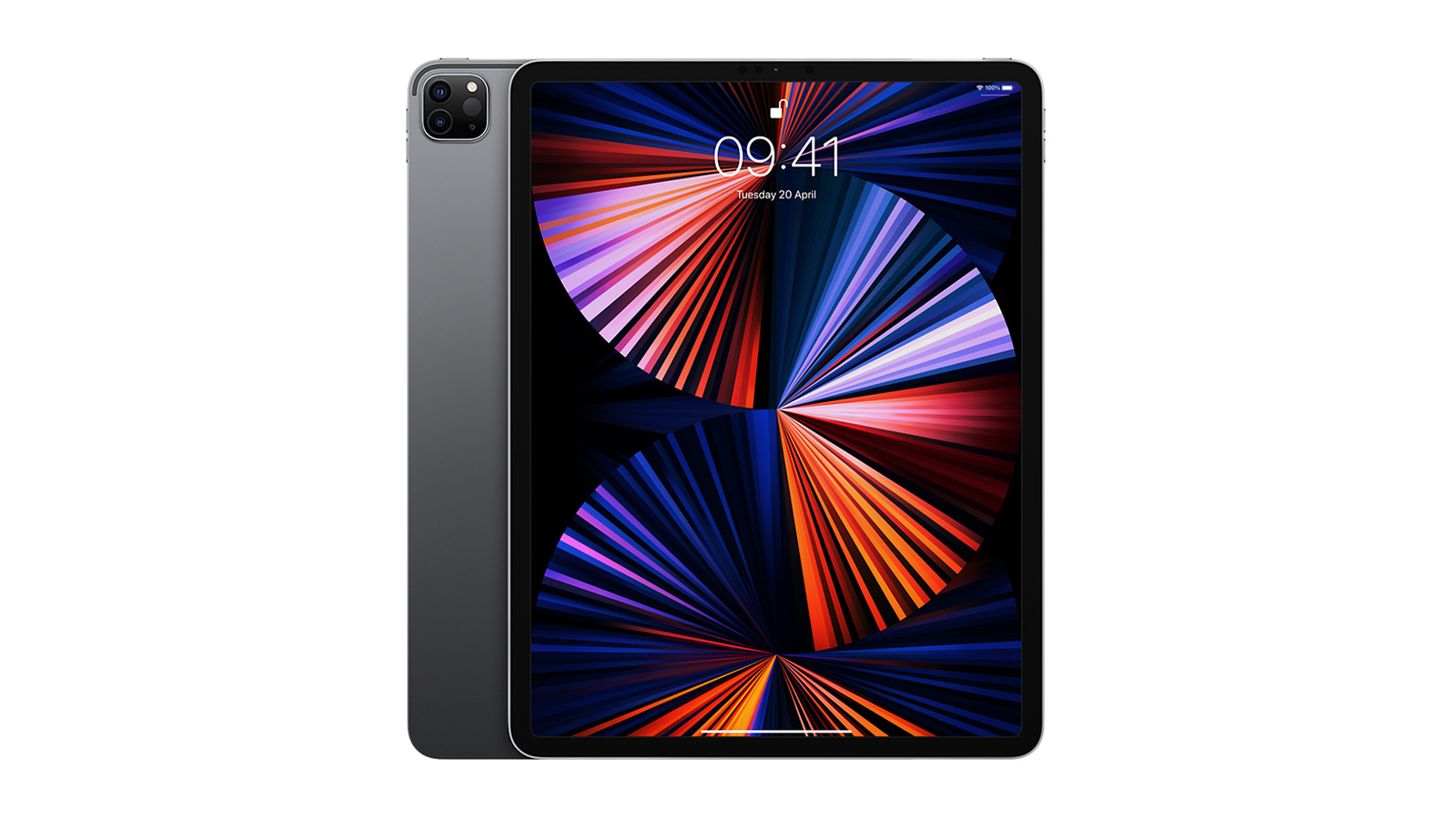
1. Apple iPad Pro 12.9-inch (5th generation, 2021)
Our expert review:
Specifications
Reasons to buy
Reasons to avoid
Apple's M1-based iPad Pros have been with us a year but are still the most 'pro' tablet around. You can easily equate the power and experience of using the iPad Pro 12.9-inch to that of the 13-inch MacBook Pro, all packed into a ridiculously thin tablet device with a stunning XDR touchscreen.
And it's the M1 chip that makes this and the new iPad Air our top choices for music making. The M1 chip has been causing a stir within Apple's computers, including the new Mac Studio, aforementioned MacBook Pro, iMac and Mac Mini, with even a base-model 8GB of RAM proving to be very decent for music making.
With the iPad Pro you get this 8GB as standard and it doubles to 16GB if you choose the 1TB or 2TB options. However, all this power doesn't come cheap. Go for the top-dollar 2TB option and you're looking at a couple of thousand all in, the same price as a fully-loaded 1TB 16GB iMac, also with an M1 chip.
You want a beautiful, static 24-inch screen or a beautiful, mobile 13-inch touchscreen? Apple doesn't make it easy to choose between desktop and iPad, no, but if you are in the market for a tablet for music making, there's nothing slicker and more powerful out there than the 12.9-inch Pro.
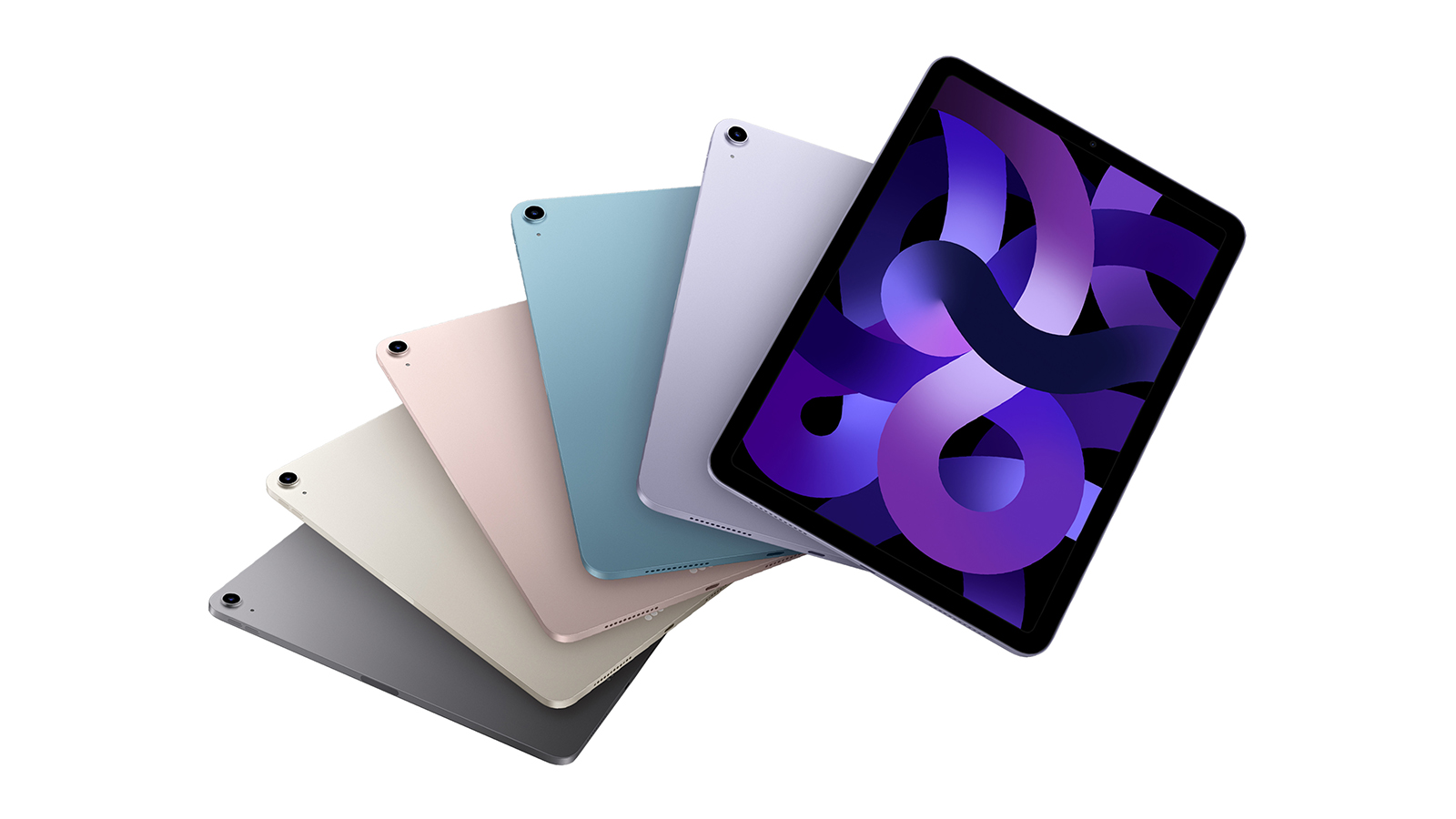
2. Apple iPad Air (5th generation, 2022)
Our expert review:
Specifications
Reasons to buy
Reasons to avoid
The latest iPad shunts others out of the way into a very commendable second place behind Apple's top machine. We'd recommend this iPad Air to people who were interested in the iPad Pro, but perhaps don't need all of its bells and whistles.
The Air has the same Apple M1 chipset as the Pro, so it's just as powerful – the 8-core CPU promises a speed boost of up to 60 percent in comparison to the previous model. In fact there was little that we could throw at the Air that challenged it. This makes it vastly superior to the previous model and it’s rare to see such a step change between versions.
iPad Air's two key differences over the Pro are that it doesn't have as much storage space and its screen is smaller (and uses a slightly different technology, though this is not that noticeable in use). However, that smaller screen also makes it a more portable option for mobile music making – and remember that is what we're here for – so you could easily argue that the iPad Air strikes the perfect balance between power and portability.
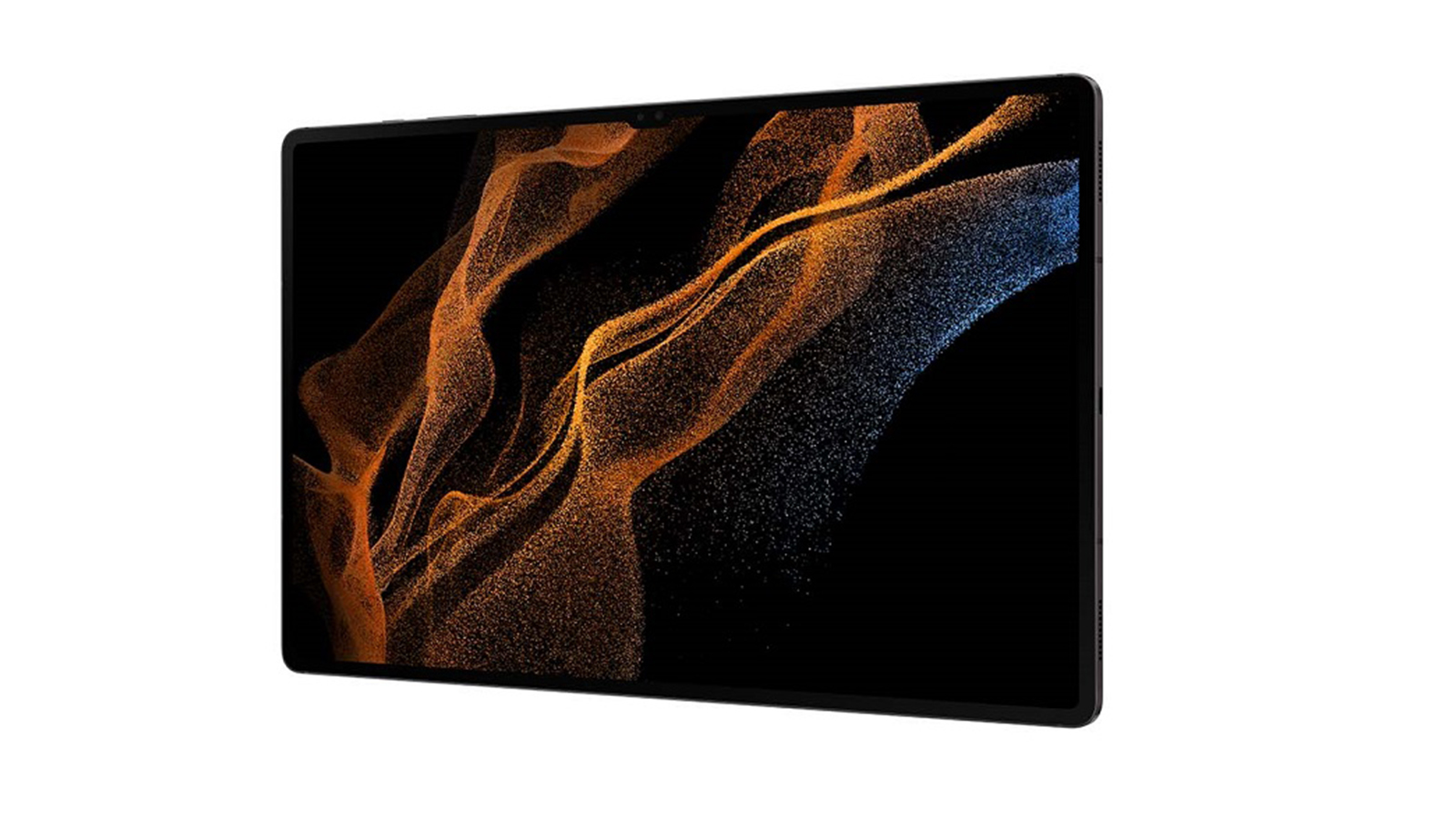
3. Samsung Galaxy Tab S8 Ultra
Our expert review:
Specifications
Reasons to buy
Reasons to avoid
The Samsung Galaxy Tab S8 Ultra clearly has Apple's top machine in its sites, not just in terms of sheer power but also screen real estate. In some ways it supersedes Apple's finest (in screen size at least) and it is certainly the top of our Android tablet picks for music production.
The Samsung Galaxy Tab S8 Ultra has the biggest screen of any tablet in our buyer's guide, at a massive 14.6-inches. This makes it a dream to make music on – you really feel like you can touch those notes. However, you really should consider the point of buying a tablet for music production in the first place, and that is that you probably want to make music anywhere and everywhere, so such a large screen – not to mention its weight – could be less practical to take out and about. One nice touch, though, is that you get an S Pen stylus included – while with most iPads you have to buy an Apple Pencil separately.
What the Samsung Galaxy Tab S8 Ultra also delivers is power, thanks in no small part to the top-end Snapdragon 8 Gen 1 chipset. We also have to mention the great speakers – you'll want to listen back to your music, and these really do deliver a great sound considering the compact size.
In some ways, the Samsung Galaxy Tab S8 can be seen as an even bigger iPad Pro – it's just that it runs the Android OS. Whether that suits you is, of course, a personal choice, but we've put it beneath the iPad Pro and Air simply because Apple's OS is that bit slicker and does offer more apps for music producers. But for Android fans who want the best available option and aren’t on a budget, this is the tablet to buy.
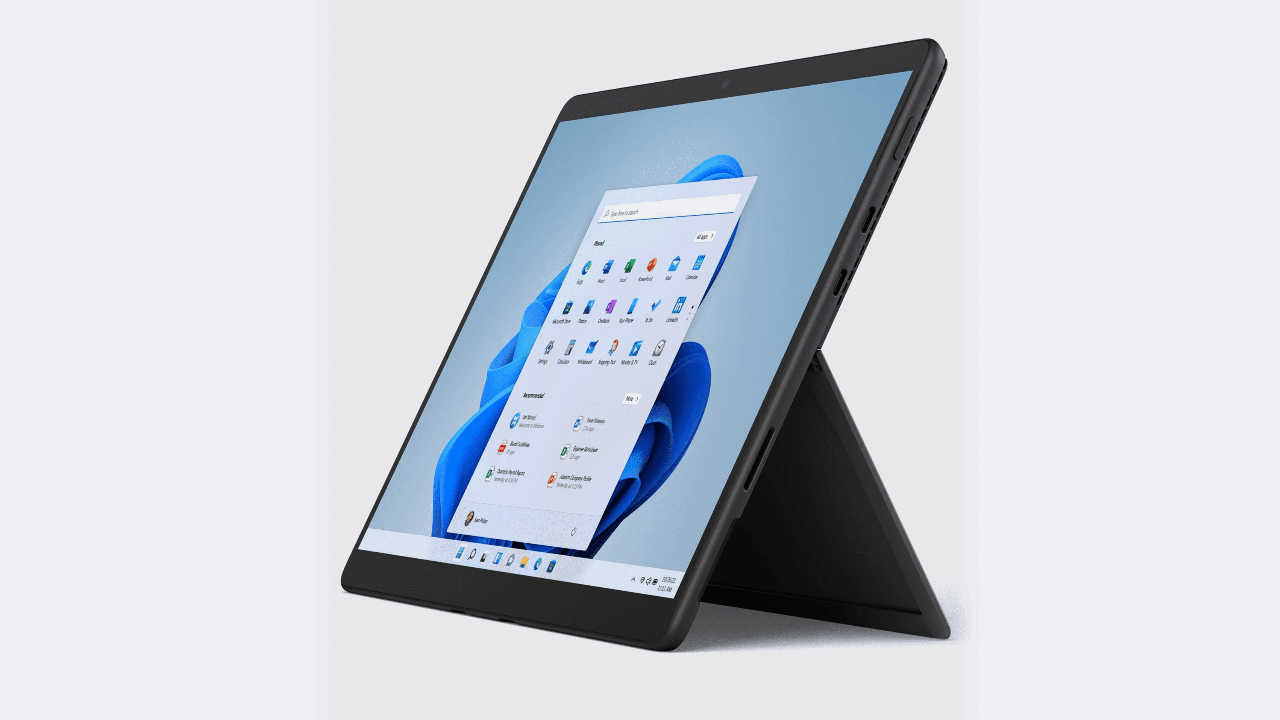
4. Microsoft Surface Pro 8
Our expert review:
Specifications
Reasons to buy
Reasons to avoid
If you are a Windows fan and music software user then tablets don't come much more refined than the daddy of them all, the Microsoft Surface Pro. Like the Lenovo below, this is more laptop than tablet, a 2-in-1 device that doubles as both. You can buy it without the keyboard, although we consider that a must-have accessory. It will therefore be weightier on both your pockets and wallet but, as the keyboard is detachable, you can run the device just as a tablet while out and about.
With the eighth incarnation, we get some much needed improvements and a completely modernised design. The biggest feature for musicians is the inclusion of Thunderbolt 4 which should keep it relatively future proof in terms of adding music production peripherals. This comes at the expense of USB-A though, so check your connectivity needs before buying
Even with its design changes – like thin bezels and rounded edges – Surface Pro 8 is still very much recognisable as part of Microsoft's famous line of tablets. Yet it also acts and feels like a new generation, with some of the fastest hardware that's ever been seen in a Windows tablet. This all makes it the best Surface Pro we’ve ever seen, despite losing some legacy ports.
Of course, all of these additions and enhancements come at a price – a lot more than its predecessor, the Surface Pro 7, and you can expect to pay well over £2k if you really up the specs. Yet Surface Pro 8 really is the update we've been waiting for and a truly powerful Windows tablet for musicians.
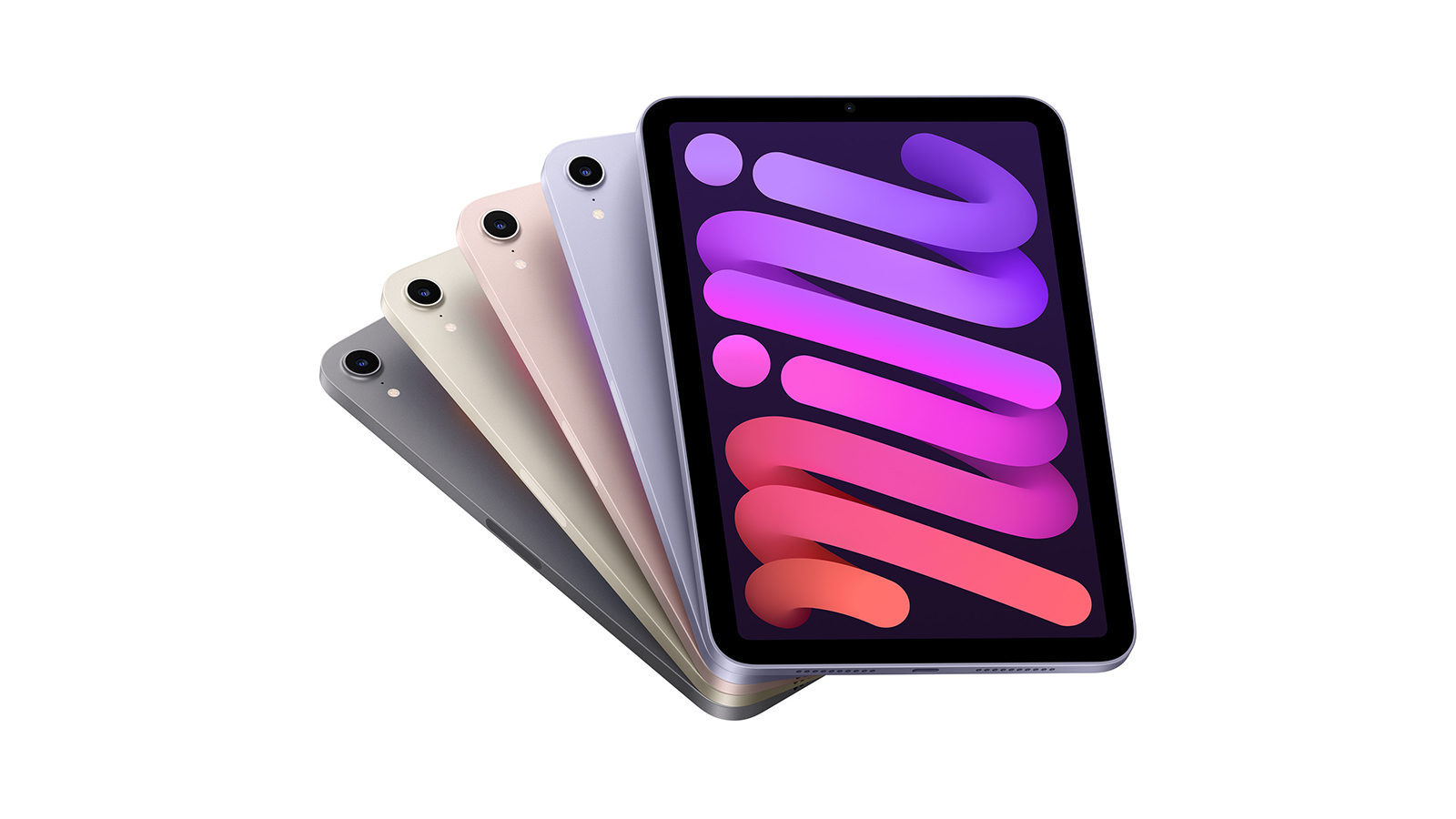
5. Apple iPad Mini (6th generation, 2021)
Our expert review:
Specifications
Reasons to buy
Reasons to avoid
The iPad Mini utilises the same 6-core A15 bionic chip as found in much of the iPhone 13 range. It also makes sense that this chip is the main focus of the iPad Mini as it's Apple's 'phone chip' and of course the Mini is closest in size to an iPhone you can get. (In a similar way the M1 chips are Apple's 'computer' chips, so it makes sense they go in the iPad Pros.)
Comparing the two performance-wise is, according to some, like comparing chalk and cheese. The M1 definitely wins out in the power stakes, but this iPad Mini will still be powered up long after a Pro's battery life dwindles away. Either way the A15 will outperform the chips in the rest of the non-Pro iPad range, so the new Mini is the most powerful non-M1 iPad available. We can certainly recommend it for music making on that score alone.
It will also suit pockets, both financially and physically, more than the Pro – and you'll be tempted, as we were, to upgrade to the new 256GB version for a reasonable extra $150/£150. The USB-C connectivity will also help add music peripherals, so this is a fantastic music producer's entry into the iPad family.
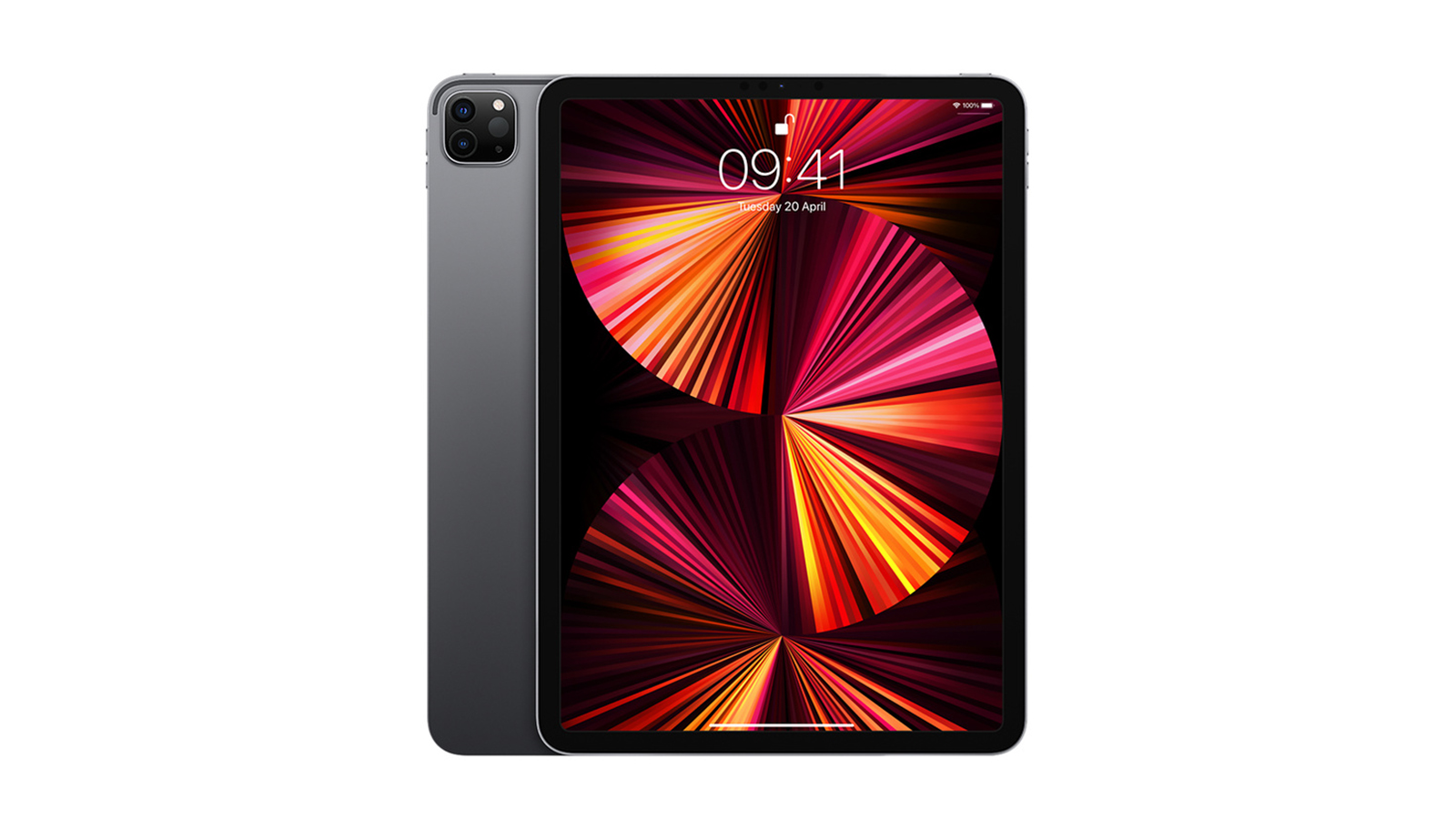
6. Apple iPad Pro 11-inch (5th generation, 2021)
Our expert review:
Specifications
Reasons to buy
Reasons to avoid
Here we get an iPad that delivers all the power but perhaps not the glory of our top rated Apple, and it's really up to you whether that bothers you. Some might say that the close-to-13 inches that the full-on iPad Pro offers is too much, especially if you want to make music on the move. And if that's you, you'll get all of the best bits of the iPad Pro world here at a much more down to earth price.
That said, you can easily add another grand to the asking price by spec'ing up the 11-inch iMac Pro to the 2TB option (which also doubles the RAM to 16GB). You'll end up with the most powerful compact iPad there is, albeit for more than you'd pay for a basic 13-inch MacBook Pro.
So as we've hinted at in the buying advice below, it's all about the screen size. If you don't need it, go for the Mini, the newer Air or this smaller iPad Pro. You will get all the power you need for music making, without showing off about it with 12.9 inches.
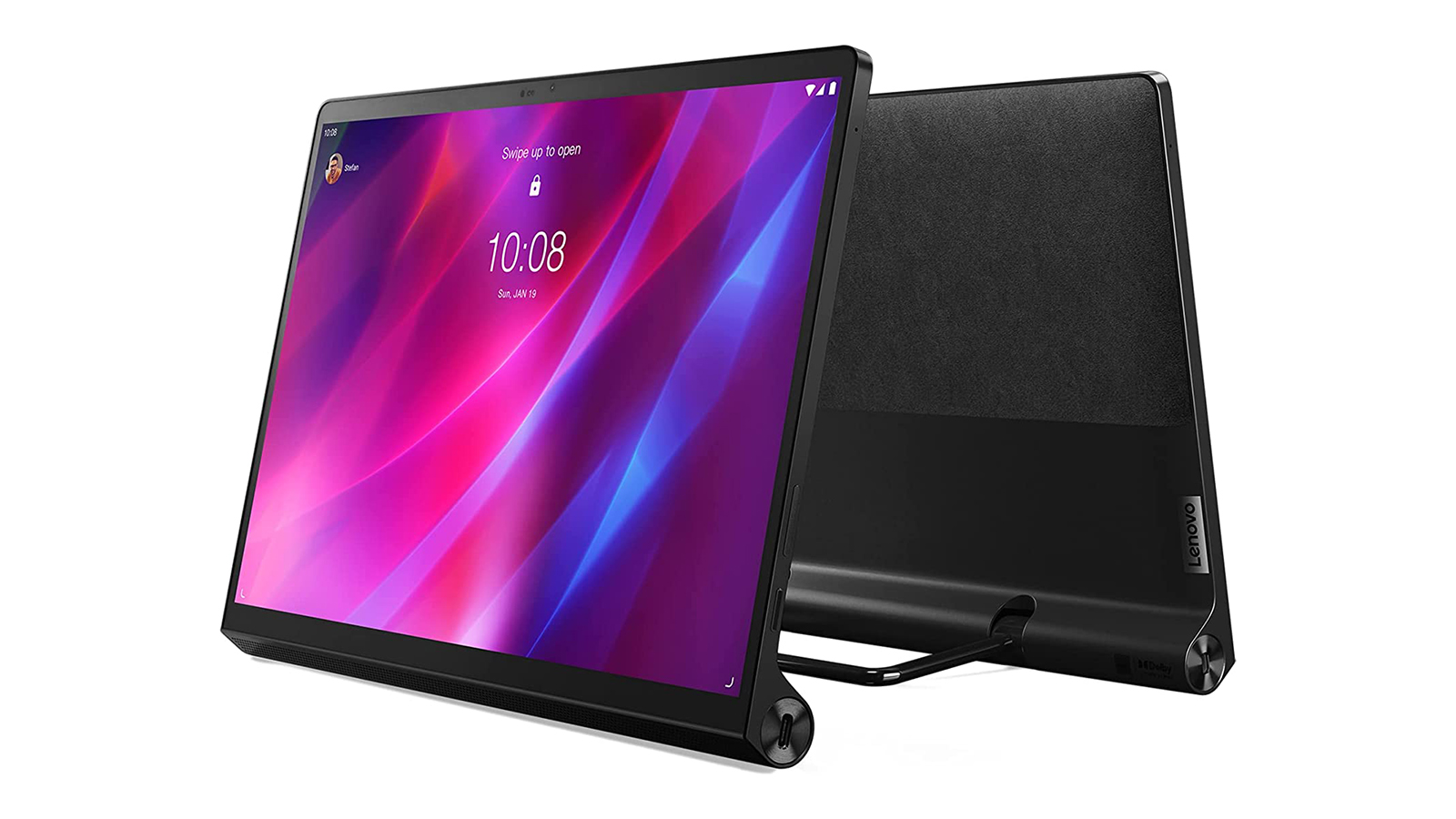
7. Lenovo Yoga Tab 13
Our expert review:
Specifications
Reasons to buy
Reasons to avoid
Lenovo is the only brand here to have a foot in two different OS camps – Windows and Android – not surprising as this model is a tablet straight from the company's Yoga line of laptops (we look at one such Windows model below).
As you might have guessed from the name, the Lenovo Yoga Tab 13 has a 13-inch screen, so just a tiny bit bigger than the largest Apple iPad Pro. It’s a display that’s big and bold and one that makes using music apps (and others) a breeze. But like all the larger screen tablets here, you'll have to decide whether bigger is better when it comes to mobile music making.
Lenovo Yoga Tab 13 has one or two standout features including a built-in kickstand for propping it up without needing a case. You can also use it as a second screen for a computer or laptop, but perhaps its standout feature for musicians is its large speaker which delivers a great sound.
Power is decent, although you might want to upgrade to the larger storage option. Because of those extra features, the Yoga Tab 13 isn’t the cheapest tablet, but is much more affordable than many of the other devices here. It is therefore a good proposition if you're after a solid Android device with some useful extras.
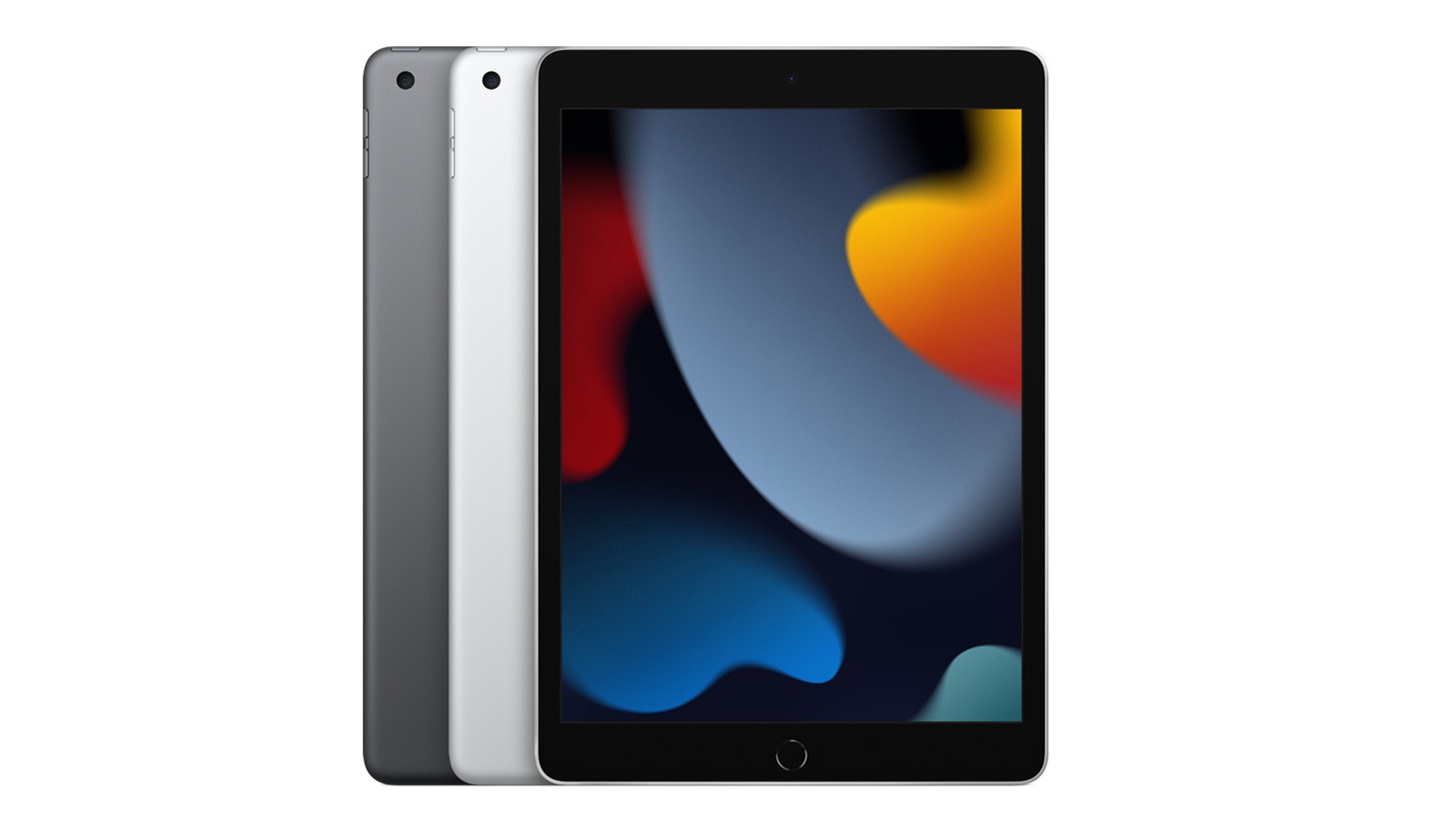
8. Apple iPad (9th generation)
Our expert review:
Specifications
Reasons to buy
Reasons to avoid
To say that the standard iPad is languishing in last place for Apple music producers is not really the true picture as it still represents a great buy – it's just the others have had their power souped up or other specs tweaked. With the 9th gen iPad, though, cost is undeniably a key target for Apple to keep down, so it's the best value iPad – by some way – but also the least powerful.
Nevertheless there are good points. It comes with 64GB capacity as a base level – the 32GB on the previous generation had been looking too weedy for too long – which should be enough for most musicians to own a decent suite of apps. The 10.2-inch screen is neither the biggest nor smallest either. And the price? Well next to the Pro this is obviously a steal, but in the world of Apple and music making, you want the biggest and best, and even though this is a third of the price of the Pro, we know which we're saving for.
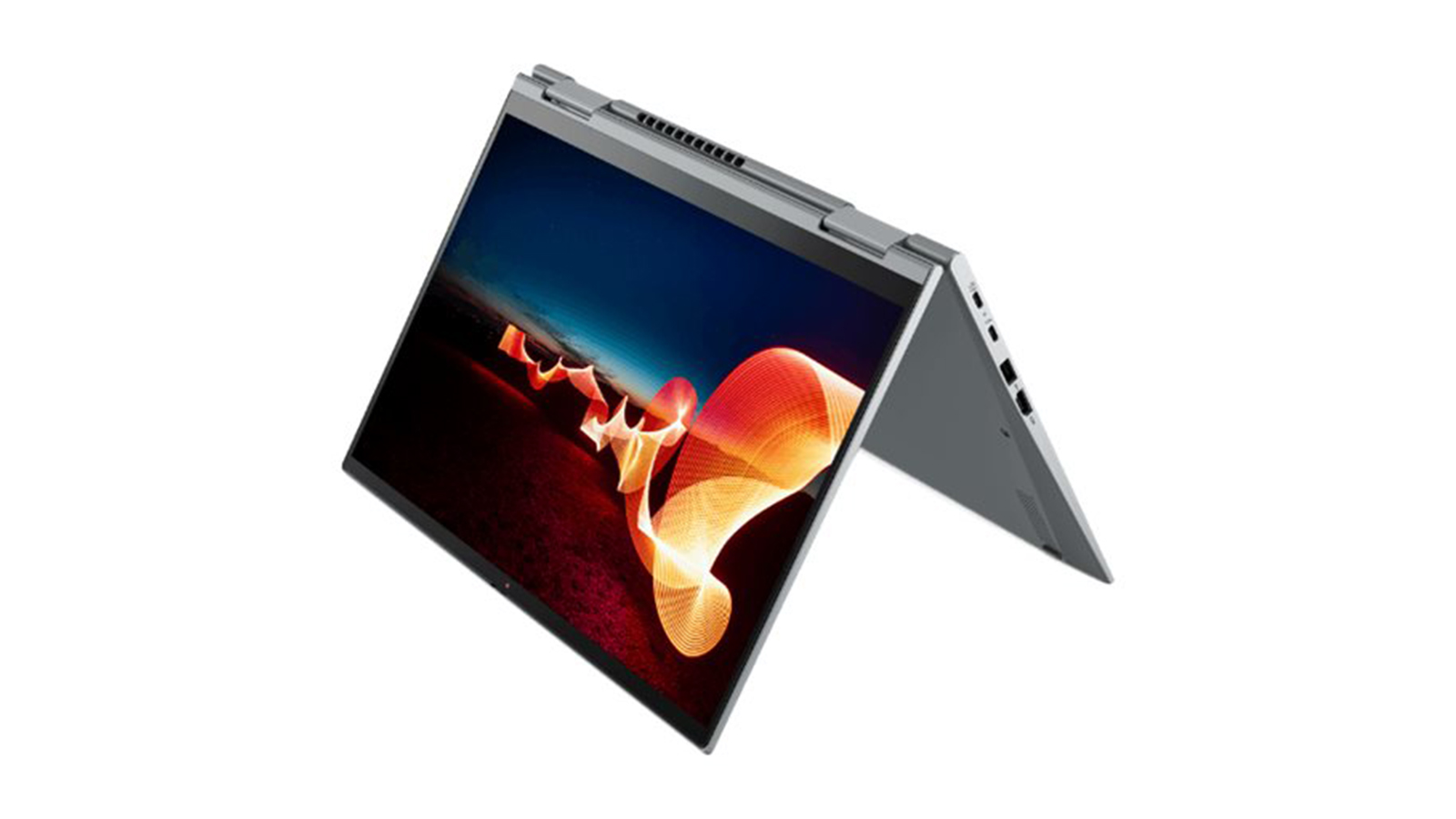
9. Lenovo ThinkPad X1 Yoga
Our expert review:
Specifications
Reasons to buy
Reasons to avoid
Lenovo's ThinkPad X1 Yoga is the latest refresh for the company's flagship laptop and is the most expensive, although we also rate cheaper machines in the X1 Yoga range, and the Android Yoga Tab 13 above. As it features a touch-screen in its 2-in-1 design it is also a tablet, albeit heavier and more expensive than others in this round-up. It runs Windows so will take on the most advanced music production applications, and the addition of Intel's 11th-gen Tiger Lake processors means it will run them with ease.
ThinkPad X1 Yoga comes loaded with connectivity for additional music peripherals. You get two USB Type-A ports in addition to the two Thunderbolt 4 USB Type-Cs, as well as an HDMI 2.0. The display is outstanding, a 16:10 touch screen – great for software that is optimised for touch. You might want to up the memory to 16GB and storage to 512GB from the standard spec (which is half this), but then you are adding to an already high price tag.
We'll make no bones about this being more laptop than tablet, but if you want the touch screen portability of tablet music making on top of a Windows OS, they don't come much more powerful. Just be prepared to lay out some cash.
Best tablet for music production: Buying advice
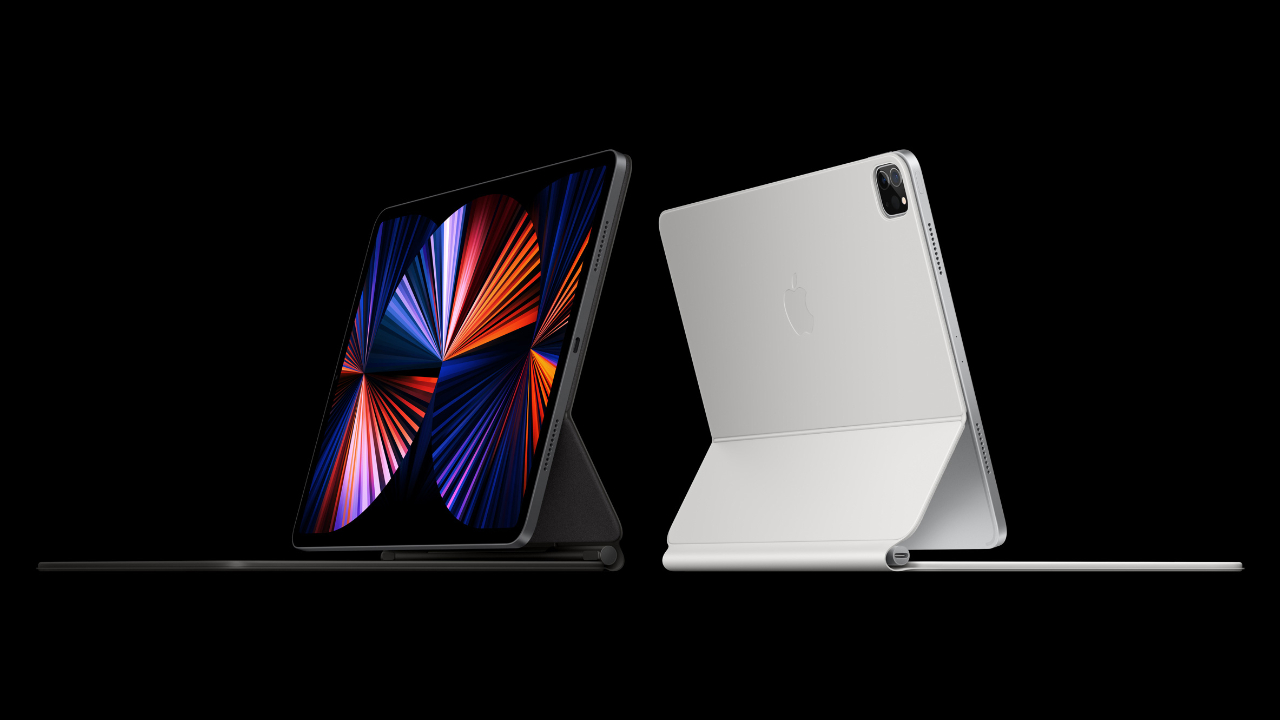
Choosing a the best tablet for music production gives you all the advantages of making music anywhere, alongside the latest touch operating experiences. However, before you buy, do consider that some tablet options – particularly highly spec'd options from Apple and Microsoft – can cost the same as a laptop or even desktop machine. So weigh up whether that touch experience and a few grams saved in weight are really what you want for music production. You may find, for example, that the initial thrill of being able to 'touch your music' is outweighed by clunky touch interfaces and your music making fingers being too big, so do try out the experience before you buy.
If you have decided that the tablet experience is the one you want, the main things to consider are how much you want to spend, and what operating system you want – with Apple's iPadOS, Android and Windows being the main options. Then choose according to what matters to you – the screen size, weight, or power for example.
For music production, the screen size is perhaps the most crucial consideration and of course you should choose this according to what you are happy working with – and can afford. Obviously most of us would choose the bigger options, but remember to balance out portability here, as the whole point of choosing a tablet over a desktop machine is the ease of music production away from home. Bigger screens usually also mean more weight – all things to ruminate over when you are making music on the go.
Android versus iOS versus Windows
MusicRadar's got your back
This is the big choice you will have to make when it comes to buying a tablet for music making. While we can't make this one for you, it may be that your existing music production set-up – if you already have one – or indeed the phone you use have already made the decision for you. If you have a Mac for music making then the iOS route is obvious; use a PC then Windows might be your choice. And Android phone users might consider Android tablets, for familiarity if nothing else.
Taking each of the three on its merits, Windows tablets give you the full desktop PC experience in a mobile, laptop-like environment – in fact the 2-in-1 tablet options are essentially laptops with touch screens. These are considered more 'pro' than Android devices but usually cost considerably more, not to mention weighing as much as a laptop. Windows tablets certainly run a gamut of music production software titles – all of the big ones – but the applications aren't always optimised for the touch experience.
Android, like iOS, is all about touch and mobility. These are optimised for use on the move, and there are many great music making applications – from fun to full-on and professional – that will give you all the tools you need for mobile music production. While we're talking Android, Amazon's slates use a version of this OS and are great for entertainment, but not so powerful for work or creativity, which is why we've not included any in this roundup.
Apple's iPads give you the best of the Apple desktop experience in a mobile, touch environment, and have probably the greatest line-up of more professional music making applications out there. That said, you are paying more for them – the iPad range is the most expensive – and it doesn't yet run the daddy of DAW packages, Logic. Yet. We say 'yet' because with many iPads in the range utilising M1 chips, there are rumours that Logic on an iPad could be around the corner which, in many producer's eyes, would make the iPad the number one choice for music making, end of.
What tablet can replace a laptop?
If you're hoping to get serious work done on a tablet then an iPad Pro, such as the iPad Pro 12.9 (2021), would be a good option. This has a big screen, lots of power, and supports a keyboard add on. For an Android alternative, consider the Samsung Galaxy Tab S8 Plus, which has similar selling points. And for PC users, the Microsoft Surface Pro is essentially a laptop PC.
Find out more about how we test music gear and services at MusicRadar.
Related buyer's guides
- Best iPads for musicians and producers: top Apple tablets for music-making
- Best phones for musicians: top smartphones for music production
- Best laptops for music production: for musicians, producers and DJs
- Best budget laptops for music production
- Best PCs for music production: Macs and desktop computers
- Best budget PCs for music production: power and performance for less
Get the MusicRadar Newsletter
Want all the hottest music and gear news, reviews, deals, features and more, direct to your inbox? Sign up here.
Andy has been writing about music production and technology for 30 years having started out on Music Technology magazine back in 1992. He has edited the magazines Future Music, Keyboard Review, MusicTech and Computer Music, which he helped launch back in 1998. He owns way too many synthesizers.
“I’m looking forward to breaking it in on stage”: Mustard will be headlining at Coachella tonight with a very exclusive Native Instruments Maschine MK3, and there’s custom yellow Kontrol S49 MIDI keyboard, too
“Turns out they weigh more than I thought... #tornthisway”: Mark Ronson injures himself trying to move a stage monitor
